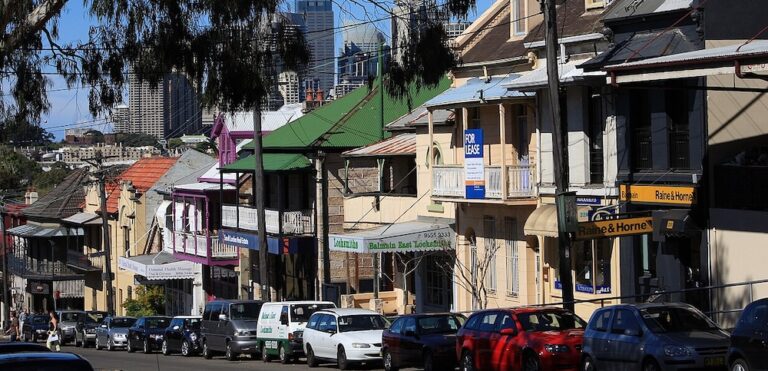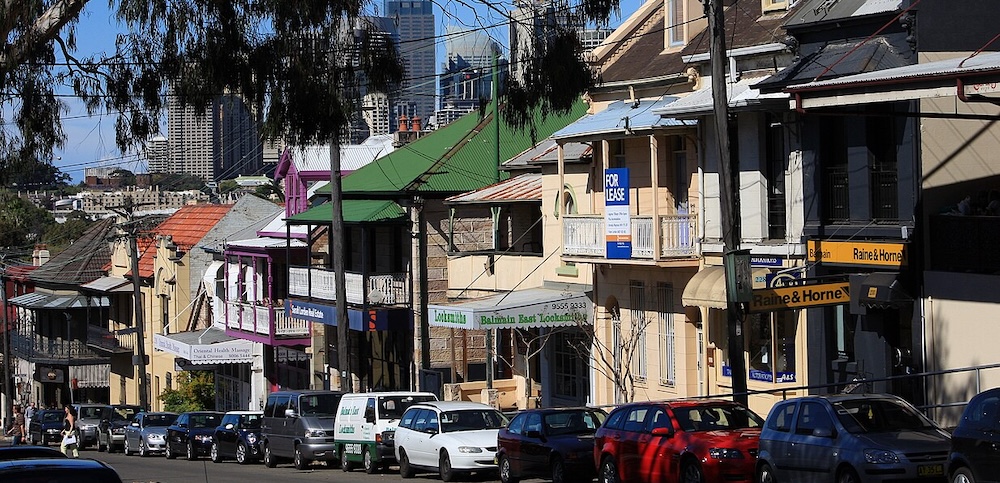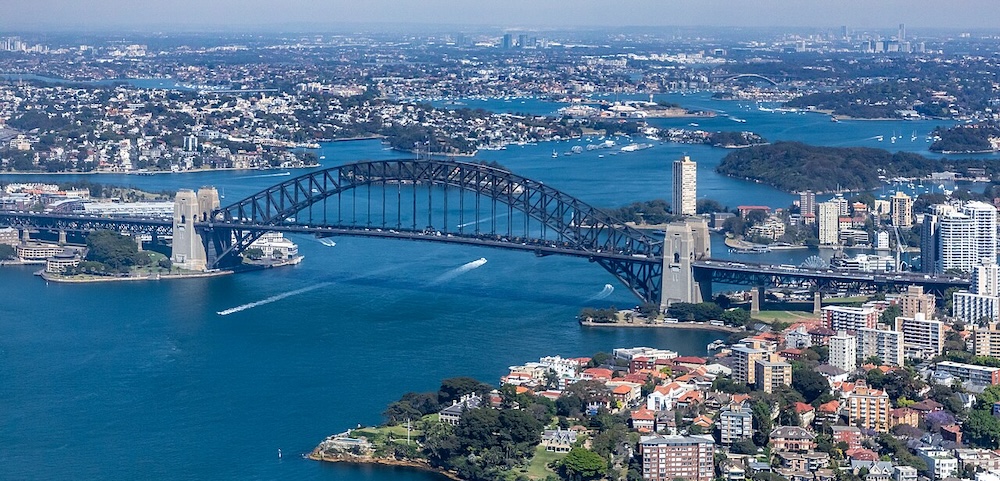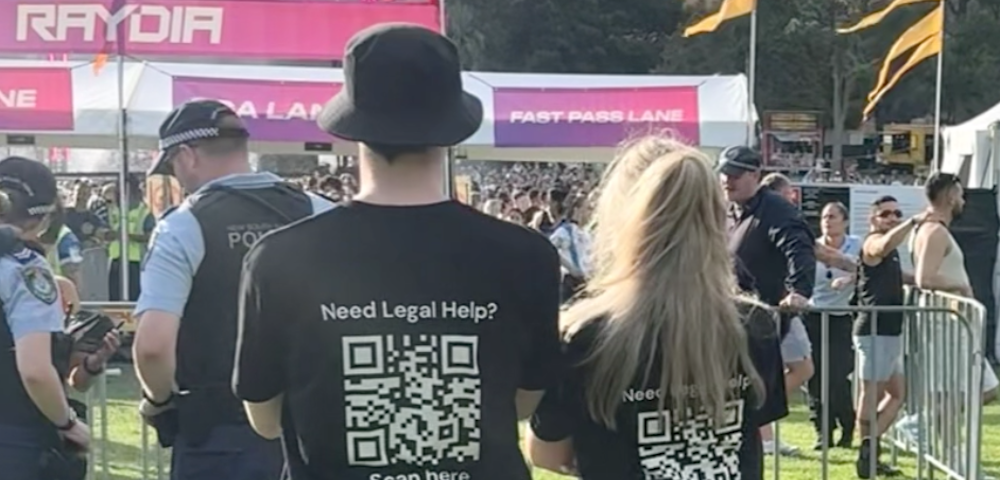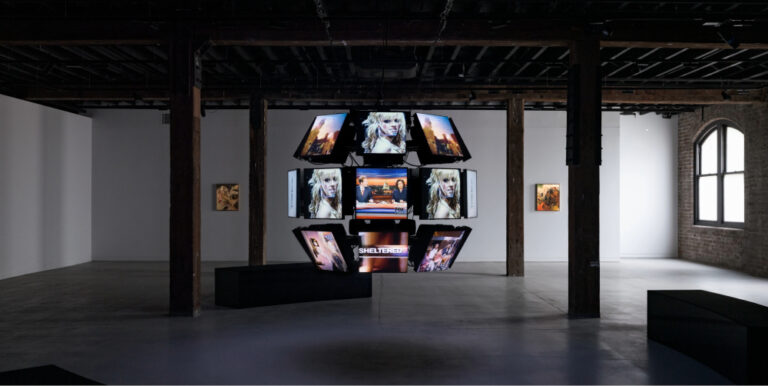
Activists cease Glebe public housing occupation, citing success

Image: Activists out the front of 82 Wentworth Park Road, Glebe. Image: Wendy Bacon/supplied.
By ROBBIE MASON
Residents and activists suspended yesterday their occupation of Glebe public housing, slated for demolition, following five consecutive nights of peaceful protest. Activists have now vacated the premises.
Antipoverty Centre spokesperson Kristin O’Connell said that the protest was “far more successful” than public housing advocates even expected.
The occupation has received significant media attention with mainstream media outlets such as Channel 10 and news.com.au covering the protest.
While it was “a bit difficult at times” to engage the office of Housing Minister Rose Jackson, residents and activists received direct contact from the Housing Minister’s office and a pledge to not sell off and privatise the plot in question at 82 Wentworth Park Road, Glebe, despite early signs of Twitter diplomacy.
In the aftermath of the initial occupation, Housing Minister Rose Jackon posted on Twitter a screenshot from a Notes application outlining her expectations for 82 Wentworth Park Road. One activist labelled this process “crazy” online and “notes app policy”. Minister Jackon’s Twitter pledge indicated there will be “no privatisation” and “100% owned and managed public housing.”
is this a commitment? notes app policy making is crazy https://t.co/MCUavVOOq3
— ishbel 🪱 (@ishbel_d) June 8, 2023
In a statement to City Hub, the Housing Minister declared “the NSW Government is considering all options to deliver an increase of 100% government owned and operated public housing and will announce our path forward soon.”
The statement suggests the current building at 82 Wentworth Park Road will not be demolished.
“Our priority is to minimise disruption for the current few residents… If any redevelopment does proceed, no resident will be evicted.”
Public housing advocates have welcomed the pledge with cautious optimism. “It looks like there is the possibility of change,” O’Connell said.
“We want the minister to continue working with people and listening and responding and to abandon this plan [for demolition and redevelopment]. If we don’t see that change, we will be back.”
Protester demands
At a press conference and public speak-out yesterday, Carolyn Ienna, a 30-year resident and Wiradjuri person at 82 Wentworth Park Road, stated that affordable and community housing, which is distinct from public housing, is a “privatisation monster”.
Ienna emphasised the overall structural integrity of the building, stating that demolition is not necessary.
Resident Irma Cortez, one of the three remaining tenants alongside Ienna, also expressed confusion over the reasoning behind the proposed demolition in the development application. “This building is safe enough to be here for at least another 30 years if they were to do the proper maintenance that a building requires to be in good condition for people to live in”, she said.
“When you’re moving elderly people around like jigsaw puzzles, not knowing what’s waiting for them in the new homes, it’s all confronting.”
Refurbishment – a cheaper alternative – and the construction of extra homes in available space on the property such as the under-utilised car park appears to be the preference among activists and residents.
“But that doesn’t have to be the only way forward for this,” O’Connell said. “There are so many options.”
The activist groups involved in the occupation – Action for Public Housing, the Antipoverty Centre and the Wentworth Park Occupation Committee – not only want the empty dwellings at 82 Wentworth Park Road filled immediately and end to evictions for current tenants.
They want public housing to be included in the redevelopment application for the nearby Sydney Fish Market site, the construction of new public homes on government-owned land and further government acquisition of land for public housing amid Sydney’s housing crisis.
According to The Guardian’s recently-released gentrification index, which is based on data from the Australian Urban Observatory, both Glebe and Forest Lodge fall into the most severe category for gentrification – “advanced exclusive”. This ranking means that the neighbouring suburbs are “largely exclusive to high income households.”



